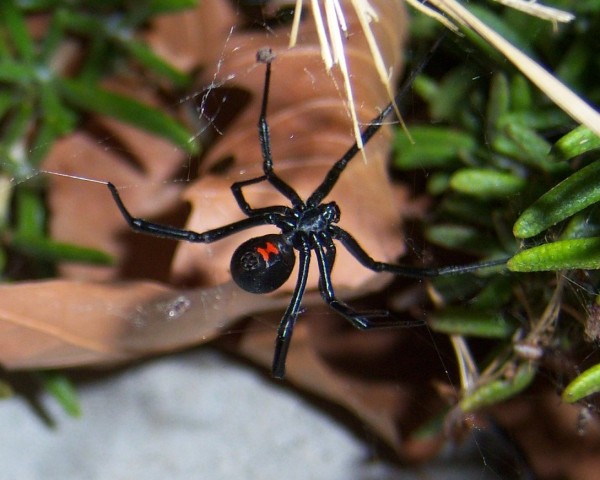Feast or fancy? Black widows shake for love

A team of Simon Fraser University biologists has found that courting male black widow spiders shake their abdomens to produce carefully pitched vibrations and avoid potential attacks by females - who otherwise may misinterpret the advances as the vibrations of prey.
The team's research has just been published in the open access journal Frontiers in Zoology.
The team of SFU graduate students Samantha Vibert and Catherine Scott, working with SFU biology professor Gerhard Gries, recorded the vibrations made by male black widow spiders (Latrodectus hesperus), hobo spiders (Tegenaria agrestis) and prey insects.
Scott explains: "The web functions as an extension of the spider's exquisitely tuned sensory system, allowing her to very quickly detect and respond to prey coming into contact with her silk.
"This presents prospective mates with a real challenge when they first arrive at a female's web: they need to signal their presence and desirability, without triggering the female's predatory response."
The researchers found that the courtship vibrations of both species differed from those of prey, but that the very low-amplitude vibratory signals produced when male black widows shake their abdomens were particularly distinctive. "These 'whispers' may help to avoid potential attacks from the females they are wooing," explains Scott.
Simon Fraser University is consistently ranked among Canada's top comprehensive universities and is one of the top 50 universities in the world under 50 years old. With campuses in Vancouver, Burnaby and Surrey, B.C., SFU engages actively with the community in its research and teaching, delivers almost 150 programs to more than 30,000 students, and has more than 125,000 alumni in 130 countries.
Jan 17, 2014 06:59 PM EST





